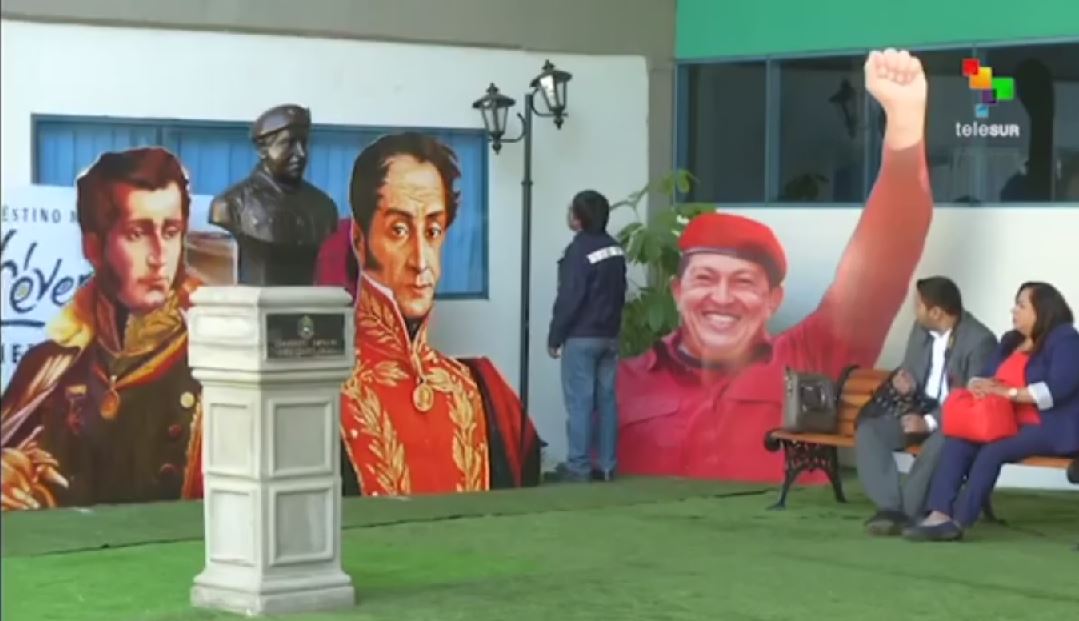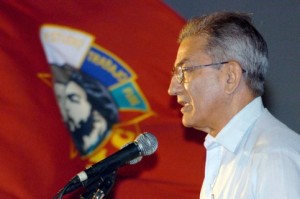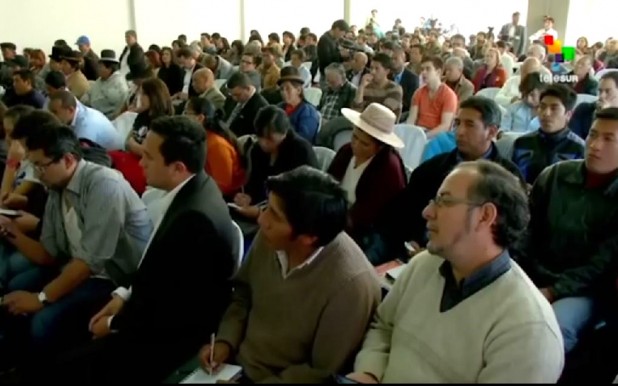
Cuba warns region of Washington’s unconventional warfare
Cuba has warned Latin American nations about the unconventional methods the United State uses to generate chaos in the countries that it considers unfriendly.
Addressing the 20th Forum of Sao Paulo, being held this year in the Bolivian capital, La Paz, the Cuban delegate, José Ramón Balaguer, said on Wednesday (Aug. 27) that the application of that strategy is part of the counteroffensive of imperialism and the right-wing forces in the hemisphere.

Balaguer is head of the Department of International Relations of the Central Committee of the Communist Party of Cuba.
Covert aggression is not new, he said, listing Washington’s many attacks against Cuba.
“To ideological subversion and political influence […] are added destabilizing and radicalized actions that seek in an expeditious manner what [U.S. leaders] call a regime change. The idea is to make U.S. involvement invisible,” he said, quoted by the Cuban news agency Prensa Latina.
Examples of such efforts are the recent recruiting of young people from Central and South American countries to infiltrate Cuban youth movements, and techniques such as ZunZuneo (“the Cuban Twitter”) to spread confusion in the population. (For background in Progreso Weekly, click here, here, and here.)
At a June meeting in Bolivia, the Group of 77+China condemned the ZunZuneo project.
[https://progresoweekly.us/group-77-decries-zunzuneo-similar-infiltration-techniques/]
The so-called regime change initiative aims to create the minimal political conditions to guarantee the empire’s objectives, Balaguer said. The main beneficiaries are the large transnational corporations, he added.
Washington and its agents “identify a group of alleged political errors made by the leaders of the country in question or objective vulnerabilities, especially an eventual socio-economical decay, which is often induced,” he said. They also stress “alleged or real differences that serve to polarize society by artificially stimulating them.”
Great financial resources are invested in such operations, Balaguer said, adding that the governments in the region must secure the greatest possible socio-economic efficiency and strongest domestic security to confront the challenges.
“Political fortitude depends in great measure on the level of unity in the core of the political organizations that lead the country, as well as the widest ties between the leaders and the population,” the Cuban delegate said.
Balaguer urged the Latin American nations to intensify their repudiation of those maneuvers, both locally and internationally, to use the Internet for such purpose, and to strengthen mutual relations so as to foil Washington’s efforts to isolate the target countries.
Multinational blocs, “such as the Community of Latin American and Caribbean States (CELAC), the Union of South American Nations (UNASUR) and the Bolivarian Alliance for the Peoples of Our America (ALBA), are, by definition, an efficient and indispensable antidote,” he said.
The Sao Paulo Forum was first held in 1990 in the Brazilian city of that name as an initiative of the Workers Party, led at the time by former President Luiz Inacio Lula da Silva.
One of Latin America’s largest gatherings of left-wing social movements, the Forum was attended this year by delegates from 180 political parties and grassroots organizations. Its focus this year is the economic crisis of capitalism and the advancement of socialism.
The forum will end on Friday (Aug. 29) with a final declaration that is expected to include formal demands for the U.S. to end its blockade of Cuba, for Britain to turn over the Malvinas [Falklands] Islands to Argentina, and for Chile to grant Bolivia a corridor to the Pacific Ocean.



